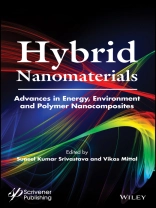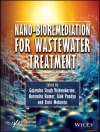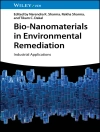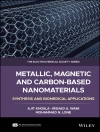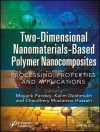The book highlights applications of hybrid materials in solar energy systems, lithium ion batteries, electromagnetic shielding, sensing of pollutants and water purification.
A hybrid material is defined as a material composed of an intimate mixture of inorganic components, organic components, or both types of components. In the last few years, a tremendous amount of attention has been given towards the development of materials for efficient energy harvesting; nanostructured hybrid materials have also been gaining significant advances to provide pollutant free drinking water, sensing of environmental pollutants, energy storage and conservation. Separately, intensive work on high performing polymer nanocomposites for applications in the automotive, aerospace and construction industries has been carried out, but the aggregation of many fillers, such as clay, LDH, CNT, graphene, represented a major barrier in their development. Only very recently has this problem been overcome by fabrication and applications of 3D hybrid nanomaterials as nanofillers in a variety of polymers.
This book, Hybrid Nanomaterials, examines all the recent developments in the research and specially covers the following subjects:
* 3D hybrid nanomaterials nanofillers
* Hybrid nanostructured materials for development of advanced lithium batteries
* High performing hybrid nanomaterials for supercapacitor applications
* Nano-hybrid materials in the development of solar energy applications
* Application of hybrid nanomaterials in water purification
* Advanced nanostructured materials in electromagnetic shielding of radiations
* Preparation, properties and application of hybrid nanomaterials in sensing of environmental pollutants
* Development of hybrid fillers/polymer nanocomposites for electronic applications
* High performance hybrid filler reinforced epoxy nanocomposites
* State-of-the-art overview of elastomer/hybrid filler nanocomposites
A propos de l’auteur
Suneel Kumar Srivastava received MSc, DIIT and Ph D from Lucknow University and the Indian Institute of Technology, Kharagpur in 1976, 1979 and 1986 respectively. He is Professor in the Department of Chemistry and Acting Head in the School of Energy Science and Engineering of the Indian Institute of Technology, Kharagpur. His research interests are in the fields of zero, one and two dimensional semiconducting and magnetic nanomaterials and their applications in energy and the environment, polymers and polymer blends. He has guided 16 Ph D students and published about 135 research papers in referred journals.
Vikas Mittal received his BTech, MTech and Ph D degree from Punjab Technical University, Jalandhar, Indian Institute of Technology, Delhi, India, Swiss Federal Institute of Technology, Zurich, Switzerland respectively. He is currently the Department Deputy Chair and an Associate Professor of Chemical Engineering at the Petroleum Institute in Abu Dhabi. Dr. Mittal has earlier worked in Polymer Research section of BASF, Ludwigshafen, Germany. His main research interest is in the areas of polymer membranes, polymer processing and nanotechnology and graphene-based nanomaterials. He has published more than 80 articles in refereed journals and conference proceedings and has authored and edited more than 30 books of which 7 are with the Wiley-Scrivener imprint.
